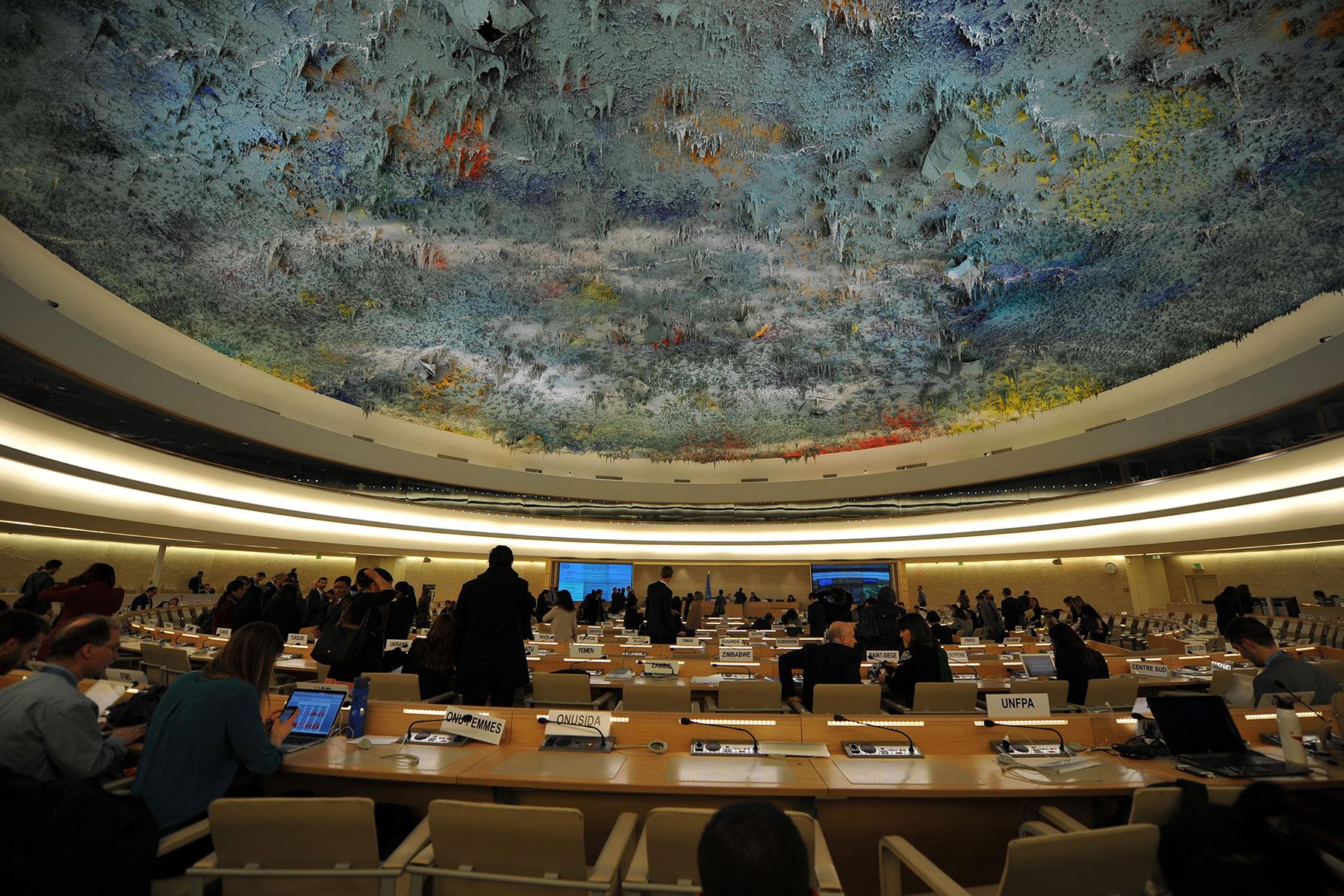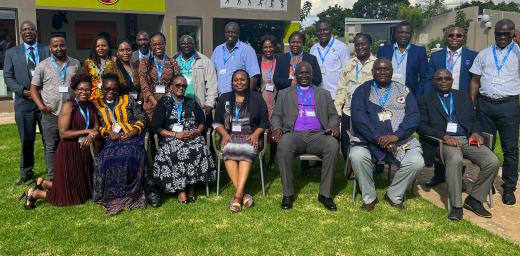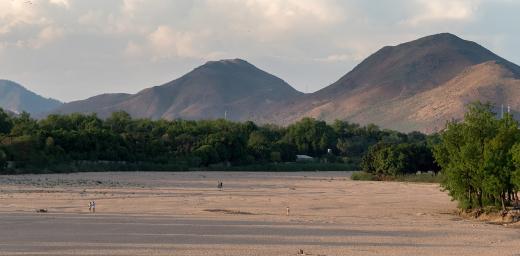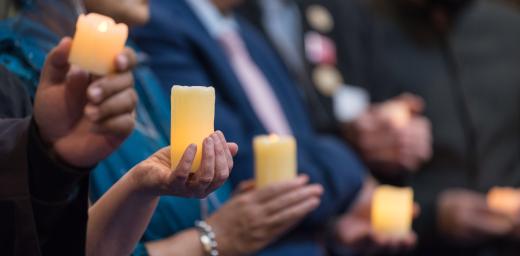Human Rights Council: LWF and member churches in Namibia and Sierra Leone submit statements defending human rights

The ceiling of the Human Rights Council, in the Palais des Nations where sessions typically take place. Due to the COVID-19 crisis, statements to the 48th session were submitted virtually. Photo: LWF/C. Kästner
LWF with member churches in Namibia and Sierra Leone engages governments through UPR mechanism
(LWI) - In statements to the 48th regular session of the United Nations (UN) Human Rights Council, the Lutheran World Federation (LWF) and two of its member churches call upon the governments in Sierra Leone and Namibia, through the Universal Periodic Review (UPR) mechanism, to continue improving the state of human rights in their country.
This was the first time the two churches engaged in human rights advocacy through the UPR mechanism to promote civil and political as well as economic, social, and cultural rights in their countries. The process drew on the unique capacity and outreach of the church to be present at all levels of society. Most of the recommendations advanced by the churches were well received in the UPR working group outcome reports of both countries. They were subsequently adopted by the Human Rights Council for the governments to follow-up on until the next review in four years.
Implementation of the recommendations however will require continued close collaboration of governments with all stakeholders. All national and local stakeholders working closely to implement the accepted recommendations would ensure tangible results and collaboration, including between state and faith based actors and would mean an expanded community involvement.
Both member churches also called on the international community to provide the necessary resources to ensure the implementation of the accepted recommendations.
Uhuru Dempers, the director of the Social Development Desk at Evangelical Lutheran Church in the Republic of Namibia (ELCRN) stated that “It was indeed worth participating in this process as churches and civil society in Namibia. In terms of the way forward, the proposal to mobilize resources ensures that we maintain the momentum and intensify our efforts with government.”
Director Dempers added, “Our thanks and appreciation to the Lutheran World Federation for inviting us and supporting us to participate in this process,. We look forward to LWF’s continued support and collaboration as we continue with the next critical stage of this platform. ELCRN would not have successfully participated in this intervention without the active involvement and support of the member churches of the Council of Churches in Namibia and other civil society organizations. We are therefore grateful for their support and active participation.”
The UPR is most effective when all relevant stakeholders, including rights holders at the grassroots level are involved. Faith based actors have the comparative advantage of being close to people and communities, including in rural areas where government presence is often scant. Churches are also able to leverage their moral integrity and credibility with Governments at the national level.
Moses Foray the focal person for the UPR engagement at the Evangelical Lutheran Church in Sierra Leone (ELCSR) thanked and appreciated the support LWF has provided to the team in Sierra Leone to engage with the UPR process. “We have gathered more experience during the period under review and we are open to more learning during the process with the hope that it will make tangible difference to our communities on the ground.”
“The UPR is most effective when all relevant stakeholders, including rights holders at the grassroots level are involved. Faith based actors have the comparative advantage of being close to people and communities, including in rural areas where government presence is often scant. Churches are also able to leverage their moral integrity and credibility with Governments at the national level,” commented Dr Emmanuel Gore, LWF Action for Justice Advocacy Officer for Human Rights.





